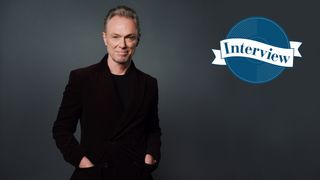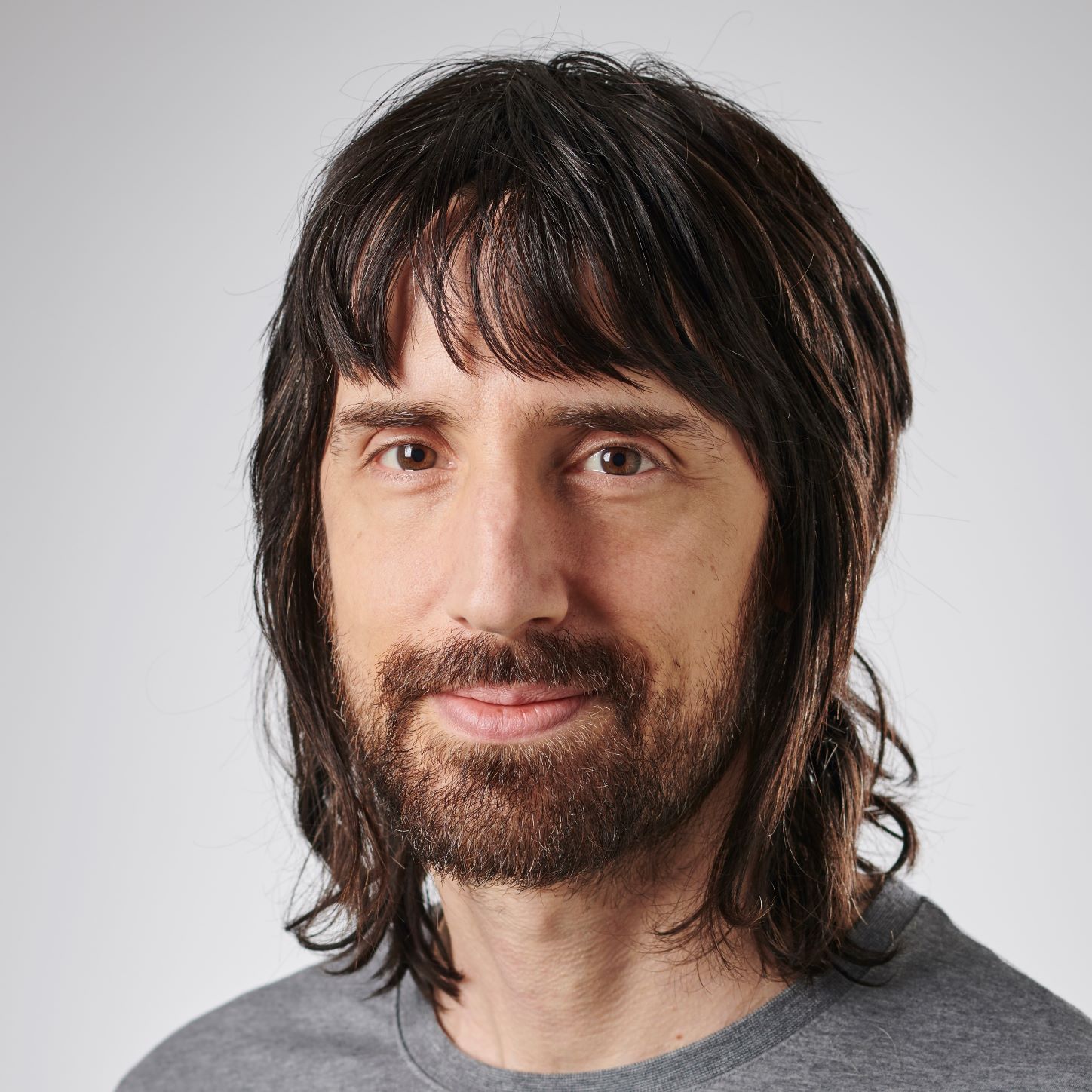Gary Kemp shot to international stardom in the 1980s as the guitarist and principal songwriter of New Romantic darlings Spandau Ballet. With millions of album sales and 23 hit singles to their name the group disbanded in 1990 in the wake of the so-called Second British Invasion. That year, Gary made his acting debut on the big screen starring alongside his brother Martin Kemp in the Kray twins’ biopic The Krays and has since straddled careers in both acting and music, releasing his first solo long player Little Bruises in 1995.
With its long-awaited follow-up INSOLO poised to drop we check in with the man himself as he prepares for post-lockdown guitar duties with Nick Mason’s Saucerful of Secrets (and just maybe some solo shows).
Was INSOLO informed by your recent prog rock experiences?
“That's definitely in my world. I grew up as a very eclectic kid. I think everyone was in the 70s. It seemed there was a sort of cultural aspiration between the working-class kids who were into their Bowie and Faces and the kids from slightly larger, self-owned houses listening to what sounded like classical music to me – bands like Genesis and Yes. But I was drawn to that as well.
"One of the greatest pieces of music from my childhood is Supper’s Ready. It was my classical music. It was my church music. I felt there was something semi-religious about what I was listening to. The intricacies and details of time signature changes and textures – it was like going to see some giant tapestry in the Sistine Chapel. So, that stuff was in my collection alongside Mick Ronson and Peter Frampton.”
You couldn’t be a guitar hero at that point. The synthesiser took over.
How did the '70s punk movement affect you?
“It was a disaster for my record collection. I saw punk as ground zero. I went down to the secondhand record store in Soho – Cheapo Cheapo – and sold all of my records. Anything that I didn’t feel was credible. I sold all of my prog records, but I think I kept The Dark Side of the Moon.
"There was a lot of that snobbery that went on. But if you listen to the second Spandau album [Diamond, 1982] it is a very schizophrenic record. There are three tracks on the second side that are very arty and different and could easily have been produced in a more prog way. As a writer, I wasn’t quite sure which way I was going at that time.”
Were you conscious of an anti-guitar hero stance at that time?
“Yes. There were two things, and they’re a bit of a paradox. On the one side, you’ve got the anti-guitar solo thing that came in with punk. Then, at the same time, we were in what ended up being called the New Romantic movement at the beginning of the 80s, which was kind of a combination of dance music and electronica, and the guitar was a sort of hidden instrument.
"You couldn’t be a guitar hero at that point. The synthesiser took over. The synthesiser was the new garage instrument. But we were looking more towards Kraftwerk, rather than say the way Stevie Wonder played the synthesiser.”
Did you use guitar to compose Spandau Ballet songs, even though the instrument wasn’t heavily featured?
“The first album [Journeys to Glory, 1981] was all synthesizer-based but from True [1983] onwards it was mostly guitar and bass. I was allowed to go back to all that stuff I’d learned in the 70s. I was thinking, ‘I want to put in major 7, sus 2, major 9, and minor 9 chords and make it a more florid piece of music. You know – a more blue-eyed soul type of music. And that was pretty much done on just an acoustic guitar.
"I’d write the songs, turn up at rehearsals and play them. To this day, I really believe in writing the song completely on an acoustic instrument before taking it into the studio.”
The first guitar sound I ever wanted to emulate was Mick Ronson’s
Did joining Nick Mason’s Saucerful of Secrets feel like a logical progression, musically speaking?
“I’ve connected with that music all my life. It might not have been apparent in Spandau, but what we were doing – being the house band in a club that was the centre of a new youth culture – was exactly like Syd Barrett and Floyd were doing at the UFO Club, which was literally ten minutes’ walk from the club we were championing, the Blitz.
"One was run by Joe Boyd and the other by Steve Strange. Psychedelia was created in one and New Romantic was created in the other. It felt like a baton being passed. And in the middle of that was punk down at the Roxy. It was about an event in the sense of ‘let’s do something new in pop culture’. So, there was that kind of connection.”
Who were your guitar heroes?
“The first guitar sound I ever wanted to emulate was Mick Ronson’s. I liked melodic guitar players like Peter Frampton, Mick Ralphs, and David Gilmour. You could take all their parts, turn them into violin parts and they would work.”
I like jumping around on pedals. To me it’s part of what you do
Saucerful of Secrets raised your profile as a guitarist considerably…
“Yeah, I sort of knew it had when someone said to me after a gig, “I really love your tone. How did you get it?” I thought, ‘Oh god, I’m in that world now!’ But I’ve used a Pete Cornish rig since 1983. My [Spandau Ballet] rig needed to be versatile because I recorded loads of overdubs on records. I absolutely love Pete Cornish. Every detail is thought about.
"I started off like everyone else with a bunch of Boss pedals and then he took the insides out and built this board. Sadly, the first one got stolen in the early '90s, but I got a second board in the '80s which I dragged out for the 2010 Spandau tour along with the TC [Electronic] rack delays. I just thought I should try and get that sound back. Pete gave it the once over and it was beautiful.
“I put together a new system in 2015 with more Pete Cornish stuff. I really like his distortions. There are three different levels on my board: a CC-1 which is a light overdrive; the G-2 which is a bit heavier; and the P-1 which is a very sustained sound. I eventually dropped the TC stuff and got into Strymons. I use the Mobius modulation, TimeLine delay and BigSky reverb. All the Strymons are hooked up to a Disaster Area MIDI switcher. I like jumping around on pedals. To me it’s part of what you do.”
How do you compose these days?
“These days, my writing is normally done at the piano. I think the influence from Nick as far as this album goes was just the feeling that I was allowed to write longer pieces of music. I think an album can be diverse. It can have things as simple as Ahead of the Game, but it can also have something as dramatic and as elongated as The Haunted or the opening track, In Solo.
"In Solo was one of the first tracks I wrote for the record and it kind of got longer and longer. Initially, it was three verses and a middle eight section. I added the guitar solo, choral voices and synthesised, elongated, dreamy section in as I went along.”
To what extent was the guitar involved in your creative process?
“I’ve got an acoustic guitar by the side of an acoustic piano. Most of this album was written lyric first, but sometimes I grabbed the acoustic. I mean, a song like Ahead of The Game – the verse was written on piano and the chorus was written on the guitar, so it was definitely a mix and match of both things.”
How did you record the guitars?
“I was doing some stuff in lockdown using software, but I knew that in the end I’d want to go into a studio and set up the amps and make it loud. I love the sound I get through my boards, and I use a Hiwatt amp from the early '70s. I also set up a Lazy J amp.
"There’s a track called I Am The Past which has got a very clean vibrato tone from the Lazy J. I used a Tele and on a couple of songs I used a Les Paul. I also recorded a solo on the track The Fastest Man in the World with an Ed O’Brien signature [EOB Sustainer] Stratocaster.”

Are there any plans to tour the album?
“I don’t have a tour planned but I couldn’t quite believe in the record until I knew I could play it live. So, I just did three days in the studio with a band. I felt a real buzz afterwards. It was like, ‘This is it! This is fantastic! Take this out on the road!’ The songs all stood up. They all worked.
"We can’t wait to get back together, but I’ve got a commitment to Nick and Saucerful for the first half of next year. We’ll be doing America and Europe and the UK. So, if I go out at all it will have to be this year or the second half of next year. Possibly with another album. We’ll see.”
INSOLO is released on 16 July. For more information visit garykemp.com


